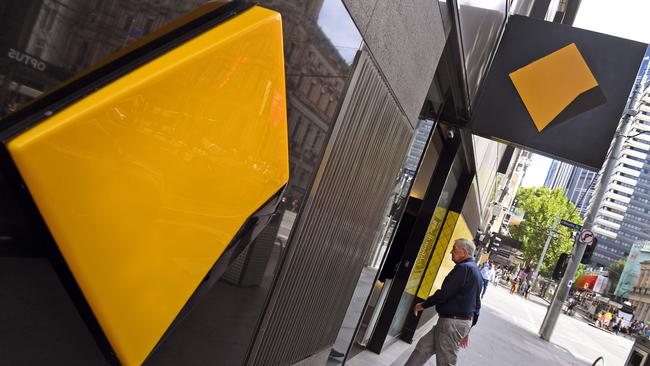ASIC says no further action over Commonwealth Bank and Austrac
After three years of hard slog, ASIC has wrapped up its investigation into Commonwealth Bank’s handling of its Austrac entanglement.

After three years of hard slog, ASIC has wrapped up its investigation into Commonwealth Bank’s handling of its Austrac entanglement, informing directors and executives by letter this week that no action would be taken.
In a roundabout way, the conduct regulator’s deputy chairman and head of enforcement Daniel Crennan QC told a parliamentary committee on Friday that the nub of the problem was a lack of evidence.
A senior lawyer has a simpler explanation: tennis.
He believes Federal Court judge Jonathan Beach’s birching of the Australian Securities & Investments Commission last month in the directors’ duties case brought against Tennis Australia director Harold Mitchell has made ASIC gun-shy.
“The CBA investigation came up with nothing because of tennis; it represents a swinging of the pendulum back in the right direction,” he says.
Ken Hayne’s excoriating review of ASIC’s soft approach to enforcement prompted the agency to adopt the royal commissioner’s disarmingly straightforward “why not litigate?” approach.
In November 2018, only days before the royal commission held its last public hearing, ASIC issued proceedings against Mr Mitchell and former Tennis Australia president Stephen Healy over the 2012 decision to award Seven West Media broadcast rights to the Australian Open.
Justice Beach dismissed the case against Mr Healy and “only narrowly” ruled in ASIC’s favour against Mr Mitchell, declaring that no damage was caused to Tennis Australia and that the regulator’s “various cover-up and conspiracy theories … turned out to lack substance”.
After first offering $130m for the broadcast rights, Seven ultimately paid $195m in 2013.
“How can you bring a case arguing directors breached their duties when the outcome was great for tennis?” the lawyer asks.
“ASIC was inevitably going to be more careful about litigating the next case, and it was with CBA.” Then-ASIC chairman Greg Medcraft told a parliamentary committee in August 2017 that the regulator was investigating a number of areas in Austrac’s claim that CBA had breached anti-money laundering laws on 53,750 occasions.
The reporting transgressions followed the rollout of a faulty network of intelligent deposit machines.
The potential breaches ranged from directors’ duties to continuous disclosure, accurate reporting of contingent liabilities, and whether the group complied with its licensing obligations to act efficiently, honestly and fairly.
While CBA paid a $700m penalty to settle the Austrac case in June 2018, ASIC continued its investigation.
One of the parties interviewed by ASIC says, from the outset, the CBA investigation was an “answer looking for a question”.
“They formed a view that the directors had done something wrong and reverse-engineered it to try and find a legal argument to prove it,” he says.
Late on Wednesday, CBA said in an announcement to the ASX it had been informed by ASIC that no enforcement action would be taken in the Austrac matter.
This covered possible continuous disclosure breaches, and whether directors and officers had complied with their obligations under the Corporation Act.
On Friday, ASIC faced questioning for the first time about why it came up with an empty CBA hand after three years of toil.
Mr Crennan, appearing before a parliamentary committee on law enforcement and COVID-19, said ASIC had formed the view after taking external advice that it was unlikely to establish any contraventions had taken place.
Asked by Labor MP Anne Aly how this could so when CBA had paid a substantial $700m fine, the ASIC deputy chair said Austrac’s legislation was mainly about reporting obligations.
ASIC, on the other hand, administered legislation that was “more complex and subtle”, and was designed so that courts generally didn’t “intrude” into the boardroom without good reason.
“The boardroom is supposed to be a place where people take risks; it’s supposed to be a place where people innovate,” Mr Crennan said. “The boardroom is supposed to be a place where directors make decisions, as long as they act within the four walls of the legislation.
“Sometimes it comes down to what the board might know or not know; sometimes it comes down to whether they knew something but took no action. Sometimes it comes down to whether one member knew and one member didn’t.”
He agreed with Dr Aly that sometimes it also came down to what directors should have known.
“As a barrister I’ve been involved in a number of these cases and they are very difficult cases,” Mr Crennan said. “That’s not to say we’re shy of bringing them.”





To join the conversation, please log in. Don't have an account? Register
Join the conversation, you are commenting as Logout